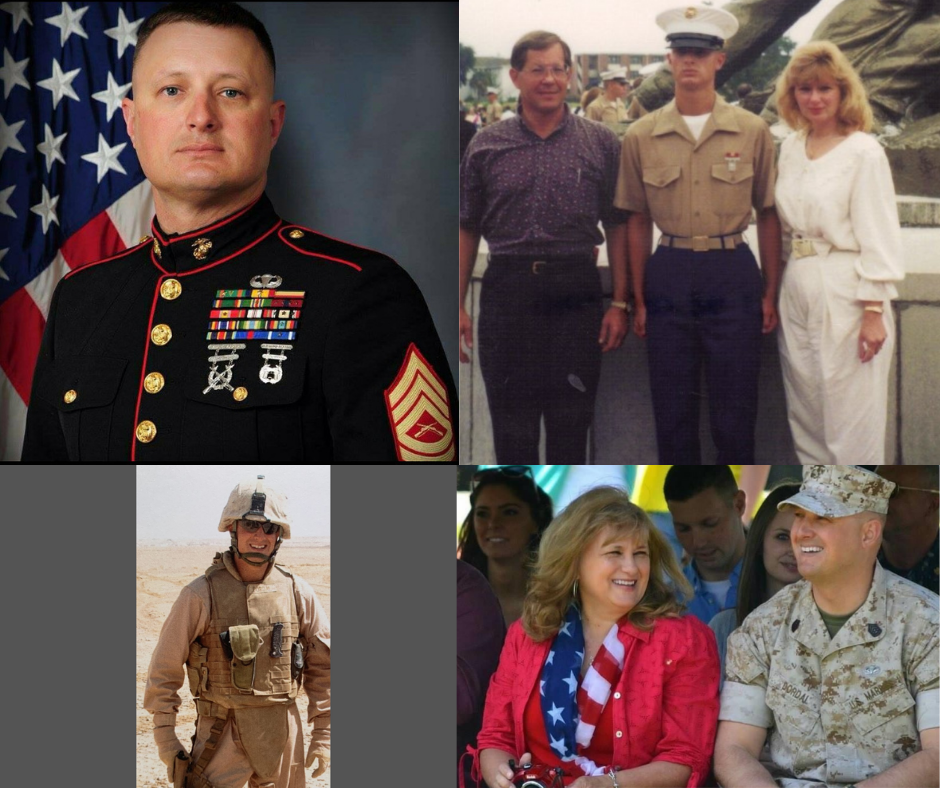
COLUMBIA, S.C. - Life experiences vary for every Veteran as they transition from military service to civilian. Many face challenges of finding a career, dealing with mental health issues, and some encounter trouble with the law.
There are resources like Veterans Treatment Courts that assist Veterans with rehabilitation options to divert them away from the criminal justice system.

For Marine Veteran, Matthew Dordal, his decision to join the military was a simple one: to follow in the footsteps of his family. Dordal served for 20 years and retired in 2015. Upon retirement he lost one of his biggest supporters in his life.

"My father was an Army Veteran and he’s one of the 22 who committed suicide, as I was retiring from the Marine Corps, so I went through that whole process and I kept it all inside,” says Dordal.
He found himself struggling to cope with the loss of his father and life outside of the military.
“I didn’t really know how to adapt once I retired. I held some jobs and I was making good money, but I wasn’t really happy and I let alcohol take over my life.”

Four years later, after a night of drinking, Dordal was involved in a motorcycle crash that nearly ended his life. He spent a month in the hospital. He had family by his side, praying for his recovery, but it was a visit from a Veterans’ resource group that changed his perspective on life.
“When I was in the hospital, I had some folks from Upstate Warrior Solution come out and help me, and I knew them because I volunteered for the organization I worked for, and they told me about Veterans Treatment Court, I had never heard of it before."


The South Carolina General Assembly recognizes the success of Veterans Treatment Courts in other states. In 2014, lawmakers passed the Veterans Treatment Court Program Act here in the Palmetto State. The purpose is to divert qualifying non-violent military Veteran offenders away from the criminal justice system and into appropriate treatment programs.
“Once they brought me on board, it was something that held me accountable, they made me, you know I’m an OCD person, I like order and discipline, I spent 20 years in the military. It helped to keep me on track to never want to get back to where I came from,” says Dordal.
While completing Veterans Treatment Court, he knew he wanted to help Veterans avoid the struggles he endured. He started volunteering at Upstate nonprofit Fellow Countrymen. A group committed to ending Veteran homelessness. He eventually landed a permanent job there.
“There are a lot of Veterans out there that are homeless who want to be. They are comfortable with it. They don’t want to be tracked down by the Government. It was hard for me to kind of understand where they were coming from, but some of them come from different eras, and it doesn’t make it easy for us to bring them in,” says Dordal.
Homelessness can sometimes lead to a Veteran taking their own life. Dordal says after losing his father, he now knows the importance of reaching out to someone before it’s too late.

"The biggest regret that I have with my Father is not being able to talk to him as much as I wanted. I was deployed all the time, I was doing this, I was doing that, I could make up every excuse in the book. Having more conversations is one of the things that can always help.”
Although the road was a bit rough, he doesn’t regret the lessons learned along the way.
“It was one of those things in life where you know you feel good that you got through that, but you’re proud of it at the same time.”


